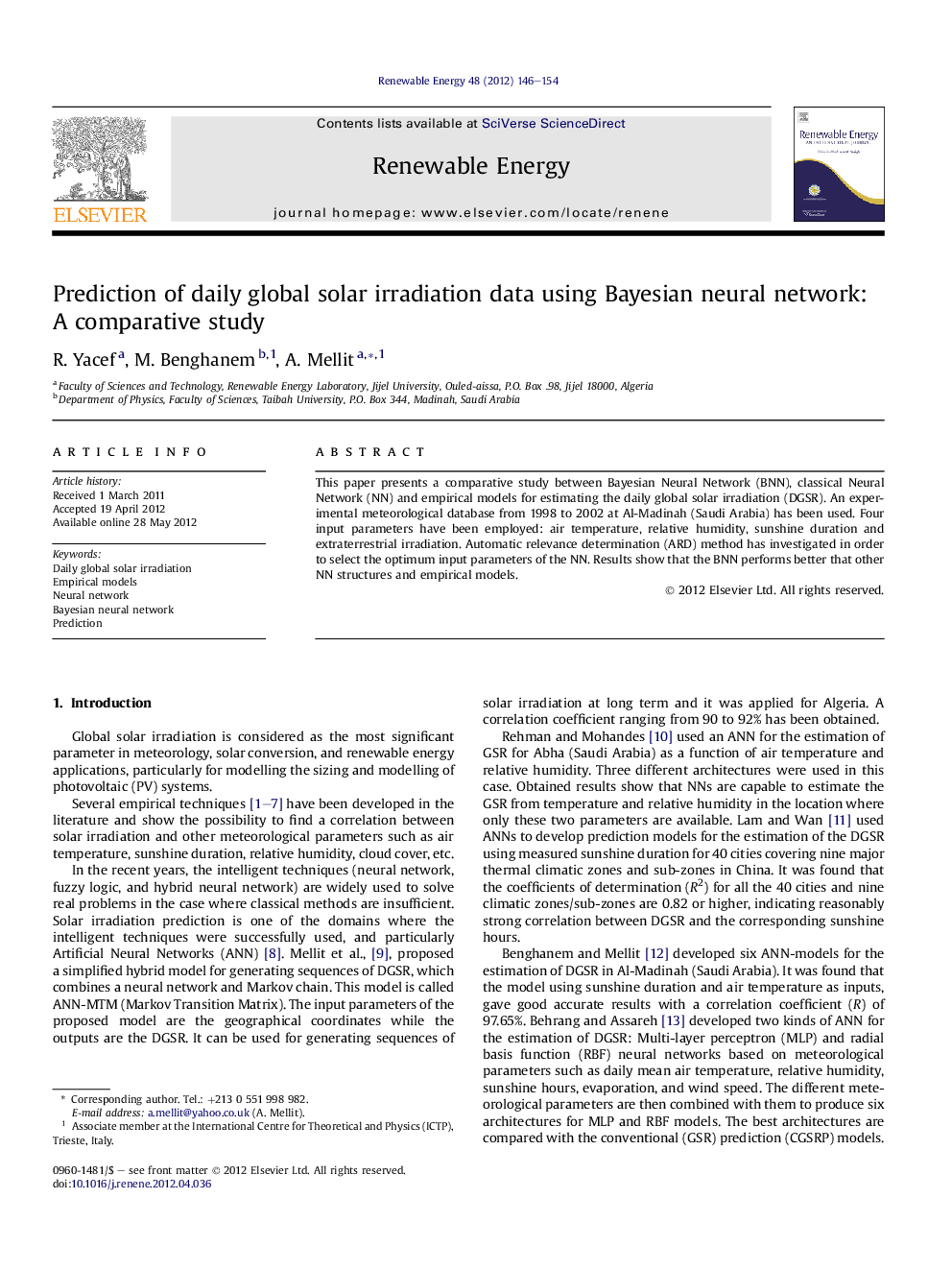| Article ID | Journal | Published Year | Pages | File Type |
|---|---|---|---|---|
| 300866 | Renewable Energy | 2012 | 9 Pages |
This paper presents a comparative study between Bayesian Neural Network (BNN), classical Neural Network (NN) and empirical models for estimating the daily global solar irradiation (DGSR). An experimental meteorological database from 1998 to 2002 at Al-Madinah (Saudi Arabia) has been used. Four input parameters have been employed: air temperature, relative humidity, sunshine duration and extraterrestrial irradiation. Automatic relevance determination (ARD) method has investigated in order to select the optimum input parameters of the NN. Results show that the BNN performs better that other NN structures and empirical models.
► Comparative study between Bayesian NN, classical NN and empirical models for estimating of global solar irradiation. ► The Bayesian Neural Network performs better that other NN structures and empirical models. ► Based on ARD technique, it has been proven that the sunshine duration is the most relevant input parameter. ► Bayesian approach offers the possibility by using of the evidence framework to select the optimal number of hidden units.
